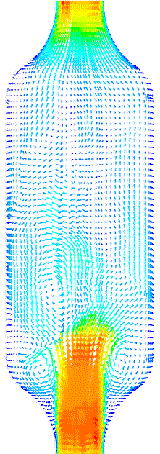
Electrostatic discharge (ESD) is the sudden and momentary electric current that flows between two objects at different electrical potentials. The term is usually used in the electronics and other industries to describe momentary unwanted currents that may cause damage to electronic equipment.
ESD is a serious issue in solid state electronics, such as integrated circuits. Integrated circuits are made from semiconductor materials such as silicon and insulating materials such as silicon dioxide. Either of these materials can suffer permanent damage when subjected to high voltages; as a result, there are now a number of antistatic devices that help prevent static build up.
ESD Standards
For establishing an ESD control program plan and to implement ESD protective measures in an Electrostatic Discharge Protected Area (EPA) it is important to follow international ESD standards.
The new version of the IEC 61340-5-1 Ed. 1.0 (2007-08) applies to activities that manufactures, process, assemble, install, package, label, service, test, inspect, transport or otherwise handle ESDS (Electro StaticDischarge Sensitive Devices) susceptible to damage by electrostatic discharges greater or equal to 100 V according to the Human Body Model (HBM).
Recommended International ESD Standards:
|
IEC 61340-5-1 ed. 1.0 |
Electrostatics - Part 5-1: |
|
IEC/TR 61340-5-2 ed. 1.0 |
Electrostatics - Part 5-1: |
|
ANSI/ESD S20.20-2007(2007-03)
|
ESD association standard for the Development of an Electrostatic Discharge Control Program for - Protection of Electrical and Electronic Parts, Assemblies and Equipment (Excluding Electrically Initiated Exposive Devices) |
|
IEC 61340-4-1 ed. 2.0 |
Electrostatics Part 4-1: |
|
IEC 61340-4-3 |
Electrostatics Part 4-1: |
|
IEC 61340-4-5 |
Electrostatics Part 4-1: |
|
IEC 61340-2-1 |
Electrostatics Part 2-1: |
|
IEC 61340-2-3 |
Electrostatics Part 2-3: |
|
IEC 61340-3-1 |
Electrostatics - Part 3-1: Methods for simulation of electrostatic effects - Human body model (HBM) electrostatic discharge test waveforms |
|
IEC 61340-3-2 |
Electrostatics - Part 3-2: Methods for simulation of electrostatic effects - Machine model (MM) electrostatic discharge test waveforms |
New Standards:
IEC 61340-4-6 (2010-01)
Electrostatics - Part 4-6:
Standard test method for specific application -Wrist straps
IEC 61340-4-7 (2010-01)
Electrostatics - Part 4-7:
Standard test method for specific application -Ionization
IEC 61340-4-8 (2010-01)
Electrostatics - Part 4-8:
Standard test method for specific application - Discharge shielding - Bags
IEC 61340-4-9 (2010-01)
Electrostatics - Part 4-9:
Standard test method for specific application - Garments
IEC 61340-5-3 (2010-03)
Electrostatics - Part 5-3:
Protection of electronic devices from electrostatic phenomena - Properties and requirements classification for packaging intended for discharge electrostatic sensitive devices







